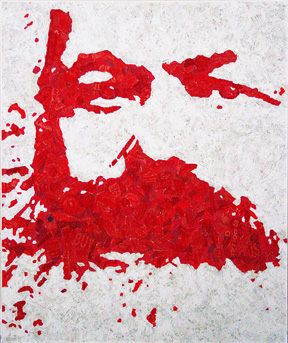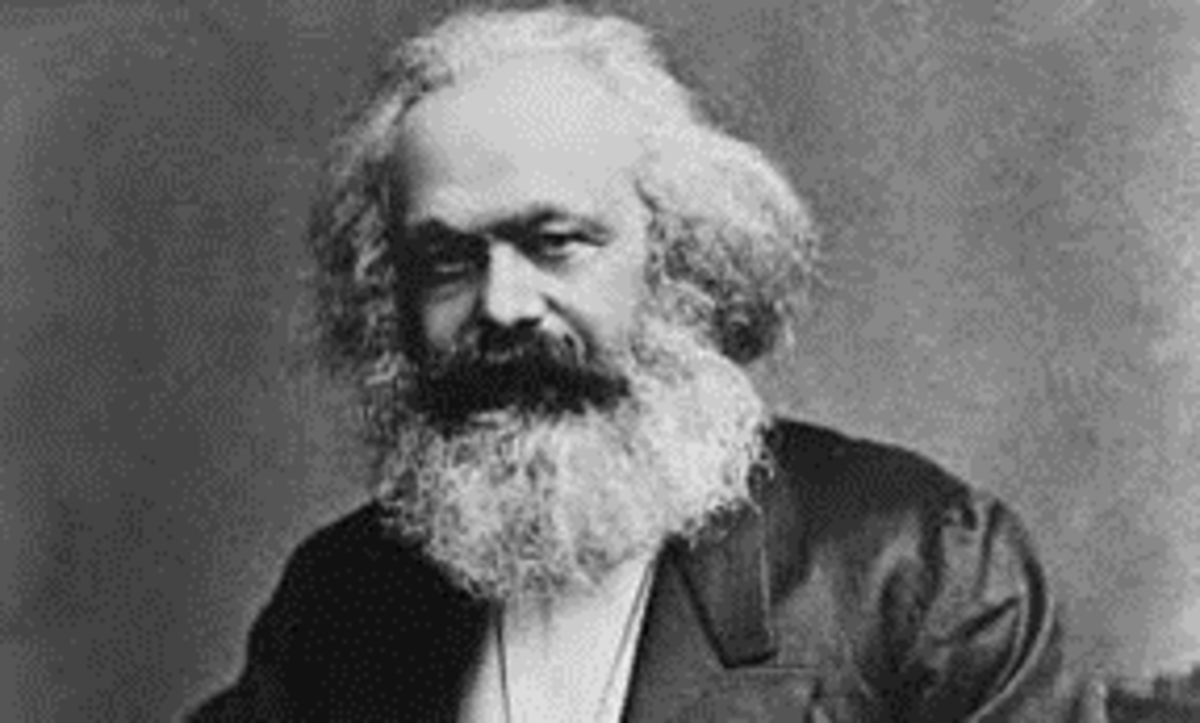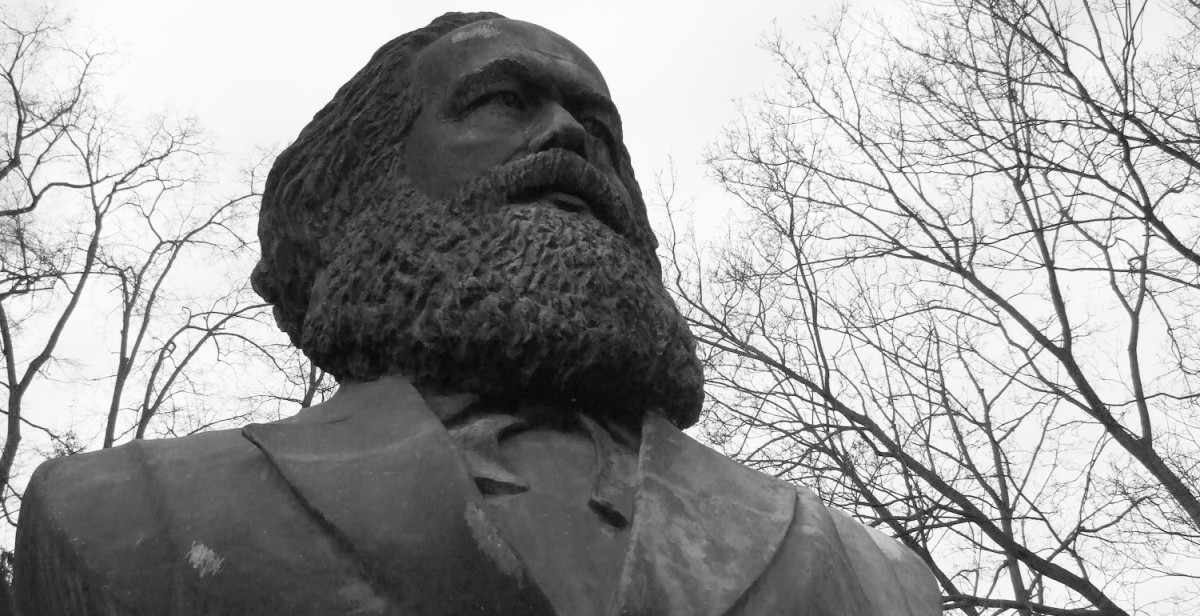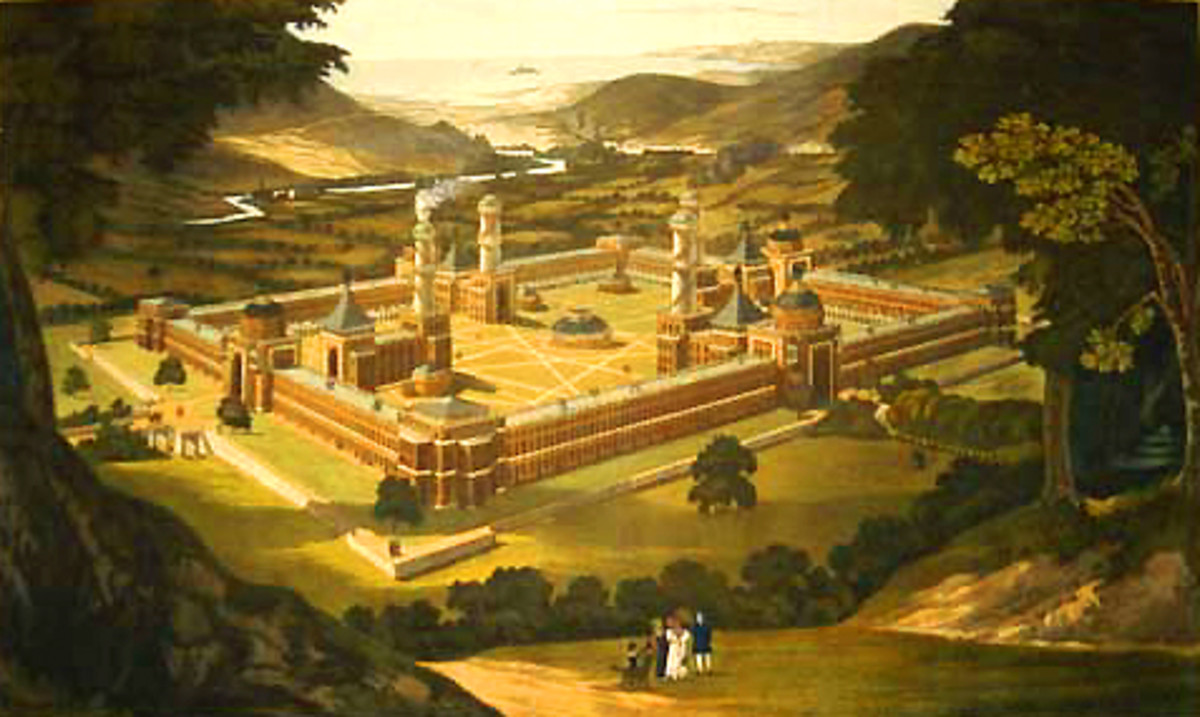Shadow of Marx

By: Wayne Brown
America, today, stands more in the shadows of “Socialism” than ever before in our history. The Communist Party still operates throughout the world and in America constantly and steadily working toward fulfilling the goals they have set forth. Communism is rather insidious in nature and is generally not announced upon arrival. Most societies are well upon its slippery slopes before the people realize what has happened. Normally, by that time, there are so many divisions, ruptures, abysses, and rips in the existing culture that a viable form of resistance cannot be raised. As citizens of this republic and followers of democratic and capitalist principles, we owe it to ourselves and our future existence to become aware and fight this vermin before it infects our nation beyond recovery.
Communism has been around for quite a long time in the history of the world. In 1847, a group of radical workers met in London and began calling themselves “The Communist League.” Out of the meeting, the group appointed Karl Marx and Frederick Engels to craft a Communist doctrine. Marx was the primary mind behind the doctrine which became known as the “Communist Manifesto”. Engels worked as the editor and assisted in some of the concept development. This doctrine became the guiding force behind the concept of “Marxism”.
Karl Marx was a professed political revolutionary with schooling in both economics and social studies. He was German by birth. Marx believed in revolution as a tool of change and felt that no revolution could be successful if “change” was not achieved. The reader might want to stop and consider where he/she has most recently heard these discussions about how strongly “change” is needed in this country today and ask whether there might be a connection to Marx’s reasoning to come to that conclusion. Essentially Marx developed his theory around the observations that in a class system some aspect of it will always be suppressed and held down by some other class in the system. His theory as a practical model pits the controlling class (Bourgeois) against the working class (Proletarians). Marx believed suppression and dominance would eventually always lead to revolution which would yield change. In that process the existing working class would come to power and dominance only to rule over and suppress a new “working class”. Change would come about but eventually the process would cycle again and again on the march through history. Marx felt this was the “natural order” of things in the world.
Communist ideology follows a thought process that assumes the history of the world is destined to revolve around the conflicts between social classes which they sort into two bins or labels identified by Marx in the “Communist Manifesto”. Marx cited that history is witness to the on-going struggle between the oppressor and the oppressed. The players change, the situation changes, but the struggle remains constant throughout history. The Manifesto points out that the struggle can be covert or overt in nature. Eventually, it always leads to revolution which either ends in a rebuilding of that particular society or in total ruination of both classes involved in the struggle, which, in the case of the latter, can only lead to extinction of that society. At this point, understand that things get complicated and other factors come into the theory such as the production factors of a society, growth in those factors, the influences and power such production creates, and the need for continual expansion of markets in order to absorb that production. That is far more than we want to understand in this writing. The key here is to understand Marx’s basic principal of class struggle and its impact on world order and history over time.
Marx developed the Manifesto with his audience in mind. He developed the document as a “selling tool” of the philosophy with which it was associated. Thus, he wrote it to be understood by the common man as opposed to the scholar. In it he establishes early on that each society is structured on a particular economic relationship which in turn forms a particular class structure which services the needs of that economy and its production. His thinking holds this concept to be true whether one is considering the feudal system of medieval times or the more modern day mass production society of the post-Industrial Revolution period of more current times. Regardless of the timeframe, each economic situation breeds a structure of classes which are eventually in conflict as a result of conditions in the market. This conflict leads to struggle, struggle leads to revolution, revolution leads to change and the society is reinvented on a different economic structure which eventually follows the same pattern through history.
While Marx’s builds his theory of struggle around class conflict, Marx did not place any importance on human beings as factors in the eventual struggle and march toward their fate in history. He attached no particular importance to religion, ideology, or culture as to having any effective value in stopping the inevitable march toward class struggle and revolution. In his mind, if the class characteristics of society were allowed to develop, then the future was pre-destined.
For the reason outlined above, Marx looked upon capitalism as an “unstable” situation. He proposed that those who would control production in a given society would, on the basis of profit and greed, be driven to continually demand more production from the worker class and a great and greater market for the consumption of the production in order to avoid the accumulation of undesired inventories. With that in mind, Marx looked into the future and realized that the worker could only produce so much production within the concept of manual labor. Eventually machines would have to be developed and employed to increase the production. Once that development had become a reality, the worker would simply become an extension of the machine.
As Marx projected the eventual Industrial Revolution, he speculated that the equation of domination, oppression, revolution and change would be modified. The advent of machines would increase production which would eventually increase the demand for workers but the wage would be suppressed as the skill set of the machine would overshadow the skill set of the worker. Wages would suffer. Demand for production would increase as would inventories and the controlling class would be forced to expand markets to increase consumption of production. Once market saturation was reached, demand for production would flatten or drop. Demand for workers would drop and jobs would disappear. As joblessness increased so would worker unrest and the cycle of potential revolution would rise.
At this point and time, the working class does develop an upper hand of sorts in that the growth in production (manufacturing capability) and market demand has increased the population of the working class. This facilitates their ability to unionize and organize. Through this organization, the workers are then able to pressure the controlling class for increased wages and working conditions. These demands eventually result in increased costs and decreased profits. If this trend continues, then the controlling class eventually begins to look for an alternative working class to fill the production role. In today’s climate this would directly relate to the trend of manufacturing jobs moving outside the borders of the USA. As a result unemployment goes up, the economy shrinks, and greater unrest develops which Marx felt would inevitably lead to the collapse of capitalism.
So, where does that leave us in America today? Certainly we are seeing some issues come to the forefront at the present. Unemployment is nearing 9% and is projected to reach 10%+ in the near term. Economic stimulus has had minimal effect on stimulating growth in the economy and has significantly increased the debt ratio relative to our gross domestic product revenue forecasts. There is talk of double digit recession if not the possibility of depression. Manufacturing jobs in the country have diminished greatly with the costs associated with unionized labor. Labor will too often elect to bring a company to its knees rather than accept a reduction in pay. Add to that equation the factor of unmanaged illegal immigration and its impact on the wage markets as well as governmental costs. It would seem that Marx was a pretty smart guy.
Maybe Marx is not so predictably intelligent. After all, if I write a manifesto which predicts outcomes and I have enough followers or believers in positions to create the environment in which those ideas will flourish, then I might also appear to be rather intelligent. The key to Marxism here is to understand that the interpretations that he shares paints the ideology of capitalism as essentially flawed in a number of ways and he ties those flaws back to occurrences in history thus predicting a pre-destined outcome.
So does Communism cure all these ills and offer relief from this destiny you might ask? In Marx’s mind it does. By his reasoning, if a society can significantly reduce or eliminate the greed and profitability associated with production, then the basis for creating classes and class struggles is either significantly reduced or erased. This is accomplished by taking the production of the people and equally redistributing it into a communal classless society. When that occurs, there is no oppression, there is no unrest, and all people within the communal society prosper or equally share in the fruits of their labor. In Marx’s way of thinking, this would be a utopian society which would be essentially flawless and enduring.
Let me stop right here and say this. What I just said in the above paragraph is the basis of reasoning for why we must teach our children the dangers and the insidious nature of Communism, Socialism, or Marxism. For the unaware, for the unknowing, this concept which Marx purports offers a utopian solution to the current ills of the world. The faster that we implement it, the sooner we can all join hands around the camp fire and sing “Kum ba Yah”; the sooner we can eliminate world hunger; the sooner we can eliminate human conflict and war; the sooner we can eliminate our guns; the sooner we can all just get along to quote Rodney King.
Fortunately or unfortunately depending on your perspective, Marx’s thinking is flawed in several ways. The most glaring one is that it creates an environment of mediocrity. When people see that they have produced more than the others around them only to have it taken from them, they eventually reduce their efforts, production falls, and there is less to be divided by the same number of people. This creates conflict and struggle. This causes people to feel oppressed because someone has to take their production and redistribute it. In that sense alone, there are two distinct classes, the producers and the takers. Classes will form within the body due to jealousy or resentment over the ability to exceed or the lack of production. All people will eventually find a level in mediocrity or below. Eventually the whole of the body is doomed to minimal existence.
The thinking is also flawed in that it does not properly weight the impact of religion, family values, cultural values, and free will. Once a given group of people have experienced these concepts, they do not easily let go of them. If they are forced to relinquish them, then class struggles ensue violating the concept of communal living.
These points probably played heavily into the development of the Communist Party goals which were read into the Congressional Journal as a matter of public record in 1963. In the 45 points included in that document it is obvious that the goals have stepped away from the purist beliefs of Marx and taken into account the impact of religion, family values, cultural values, and individual freedoms. The goals focus on undermining many of these areas in the process of creating divisions within the American culture thus leading to class struggles which, the Communist would hope, would eventually erase America as a democratic society.
This certainly does not mean they have given up or gone away. Over the years, they have continued to embed themselves within our society, to find ways to manipulate our organizations, and to gain positions of control within our government which today appear to be some very high elected offices. They continue to work on the goals and make progress of which one of the most recent examples is government control of medical care. If we look downstream, we can easily see that financial, immigration, and energy will also be moved toward a philosophy of central control. This plays directly to the desires of the Communist in that the more that control is exercised from a central point, the easier it is to take over the process. Our ability to navigate these waters in the past has been the complexity of our governance through a system of strong states rights. The founders recognized the dangers of centralization and strong central government and warned us so. We must maintain a strong front on states rights if we are to effectively oppose this advance. Arizona is leading the charge.
We live in a great nation here in America. It has been a great nation from the founding and through the struggles we have endured such as wars and civil conflicts. Through it all, we have held on to our liberty and our freedom such that we have been lulled into a mindset that no matter what happens we are going to be okay and everything will come out just fine. We have become fat and apathetic as a body of citizens. We have to change that. We have to become more aware of the insidious nature of Communism and we have to recognize Communists in our midst and work to get them out of positions of responsibility and decision-making. Our future as a free-nation with inalienable rights of life, liberty, and the pursuit of happiness absolutely depend upon it.
© Copyright WBrown2010. All Rights Reserved.








